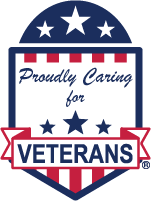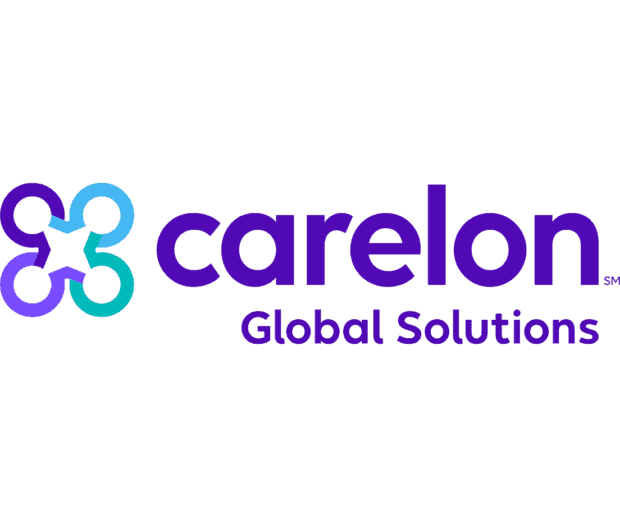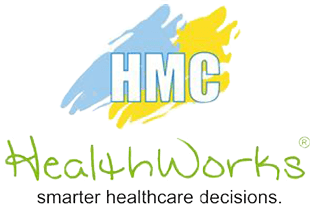

Working To Make Your Recovery Affordable By Accepting Most Insurances
Do not be discouraged if you are not seeing your insurance provider listed on our website. We take many types of insurance! Call Today: (844) 292-5010
-
 In-Network: BCBS
In-Network: BCBS -
 In-Network: Aetna
In-Network: Aetna -
 In-Network: Tricare
In-Network: Tricare -
 In-Network: Cigna
In-Network: Cigna -
 Proudly Caring for Veterans
Proudly Caring for Veterans -
 In-Network: Carelon
In-Network: Carelon -
 In-Network: MultiPlan
In-Network: MultiPlan -
 In-Network: HMC
In-Network: HMC
Xanax Addiction Treatment in Prescott, AZ
Get Treatment for Xanax Addiction at Decision Point Center
 Xanax is one of the most commonly prescribed benzodiazepine drugs. Unfortunately, it’s also one of the most addictive. Used to treat stress, panic disorders, insomnia, and anxiety, Xanax unwinds the muscles and creates feelings of relaxation and euphoria.
Xanax is one of the most commonly prescribed benzodiazepine drugs. Unfortunately, it’s also one of the most addictive. Used to treat stress, panic disorders, insomnia, and anxiety, Xanax unwinds the muscles and creates feelings of relaxation and euphoria.
When Xanax users experience these enjoyable sensations, they may start to crave the drug. Xanax addiction happens fast. According to the Royal College of Psychiatrists, benzodiazepine addiction can form within 6 weeks and 4 out of 10 users become addicted.
If you find yourself craving Xanax and worry you may have formed an addiction, Decision Point Center can help. Call (844) 292-5010 today to take the first step towards sobriety.
Xanax Dependence and Withdrawal
Long-term use of Xanax can lead to drug tolerance and dependence. If your body learns to tolerate Xanax, you will need to take more pills to achieve the relaxing and euphoric effects of the drug, and you may feel achy or miserable without it. People with a Xanax addiction may take up to 20 or 30 pills per day to achieve the desired effects. Once their prescription runs out, they may seek the drug through illegal means.
Because your body gets used to Xanax, quitting may be especially difficult from a physical standpoint. If you stop taking Xanax “cold turkey,” or all at once, you may experience symptoms of physical dependence and withdrawal.
Symptoms of Xanax withdrawal include:
- Headaches
- Dizziness
- Numbness and tingling (in the hands, feet, or face)
- Blurred vision
- Anxiety
- Aggression
- Irritability and mood swings
- Aches and pains
- Tense muscles
- Hypersensitivity to light and sound
- Nausea and vomiting
- Nightmares and insomnia
- Depression
- Paranoia
- Suicidal thoughts
In some cases, Xanax withdrawal can cause tremors, seizures, and difficulty breathing. If convulsions occur, withdrawal can even be deadly.
To stop using Xanax safely, you will need to quit over time and/or seek medically assisted detox and rehabilitation.
At Decision Point Center, we can manage the effects of withdrawal and help you beat drug dependency. Call us at (844) 292-5010 to get started.
How Xanax Works
Xanax affects the brain and central nervous system by boosting a brain chemical called gamma-aminobutyric acid (GABA). When GABA is released, you may feel calmer and more relaxed. Xanax is a fast-acting benzodiazepine, which means you will feel the effects of the drug with 1 to 2 hours. From there, the drug stays in your system for 12 to 15 hours. Xanax is the brand name of the drug alprazolam, which comes with a warning about drug abuse and dependence.
Behavioral Signs of Xanax Addiction
Not only does Xanax addiction affect your body, but it can also rewire your brain. People struggling with Xanax addiction may prioritize drug consumption over their loved ones and daily responsibilities.
You may be addicted to Xanax if you:
- Are less interested in activities you once enjoyed
- Find yourself spending less time with friends and family
- Are constantly thinking about your next dose
- Take more Xanax than you mean to in any given period
- Use more Xanax than your prescription allows
- Use Xanax without a prescription
- Inject or snort Xanax
- Take Xanax with other drugs or alcohol
- Take Xanax even though it is having negative effects on your life
- Obsess over getting and using Xanax
- Break the law to obtain Xanax
- Engage in risky behaviors while on Xanax
- Want to stop using Xanax but can’t
If you become addicted to Xanax, it is not your fault. Many providers prescribe Xanax for anxiety without addressing underlying issues and end up making the disorder worse. Further, addiction is a serious disease that affects your brain and body. Although anyone can struggle with prescription drug addiction, it’s up to you to get help.
Xanax Rehab FAQ
Is Xanax an opioid?
Xanax is not an opioid. Xanax is a benzodiazepine medication. Like an opioid, though, Xanax can be highly addictive and can cause serious health consequences if abused.
How long does Xanax rehab take?
A Xanax rehabilitation program will take a varying amount of time based on the needs of the person in the program. Some people only require a relatively short program, like one that spans about 30 days or a month. Other people need lengthier programs that last two or three months. Furthermore, some people require ongoing rehab treatments like therapies for at least a year until they feel confident that they can remain sober on their own.
What are the treatment options for Xanax addiction?
Xanax addiction treatment options usually include residential inpatient care, partial hospitalization, or intensive outpatient care, depending on the needs of the person in the rehab program. Also, most Xanax addiction plans will start with medical detoxification to mitigate the risk of dangerous withdrawal symptoms.
What is the success rate for Xanax rehab?
The success rate of completing a Xanax rehab program is usually quite high. However, a noticeable percentage of people who complete a Xanax rehab program will eventually relapse, either using Xanax again or another unsafe substance. What’s important is to accept that relapsing is not a failure, it is only a step in the recovery process. With ongoing support and determination, you can continue your health journey with confidence, even if you initially feel worried about relapsing.
Is it dangerous to quit Xanax "cold turkey"?
Quitting Xanax abruptly without medical supervision is extremely dangerous and potentially life-threatening. The sudden removal of the drug can cause the brain to enter a state of hyperexcitability, which may lead to seizures, psychosis, or severe cardiovascular complications. Professional treatment centers use a gradual tapering process to slowly lower the dosage and protect the patient's safety.
Can I experience withdrawal symptoms even if I took Xanax as prescribed?
Yes. Xanax is a fast-acting benzodiazepine that can lead to physical dependence in as little as two to four weeks, even when used exactly as a doctor directs. When you stop taking the medication, the nervous system becomes overactive, leading to "rebound" symptoms like intense anxiety, insomnia, and tremors.
How does dual diagnosis treatment work for Xanax addiction?
Since Xanax is frequently prescribed for anxiety and panic disorders, many people struggling with addiction have an underlying mental health condition. Dual diagnosis treatment addresses both the substance use disorder and the co-occurring mental illness simultaneously. By treating the root cause of the anxiety through therapy rather than medication alone, patients learn to manage their symptoms without relying on addictive substances.
Contact The Professionals at Decision Point Center Today
Xanax carries a significant risk of dependence and addiction. While it can offer relief for those struggling with mental health challenges, its potent effects can quickly lead to a physical and psychological reliance that requires professional intervention. For individuals and families in Prescott, Arizona, seeking effective and compassionate care, Decision Point Center offers comprehensive Xanax addiction treatment tailored to foster lasting recovery.
Decision Point Center offers a unique approach to Xanax addiction treatment. We understand that addiction is a complex disease requiring a multi-faceted and individualized strategy. Our philosophy centers on treating the whole person addressing not just the substance use itself, but also the underlying issues that contribute to addiction. Our dedicated team of clinicians, therapists, and medical professionals provides a safe, structured, and nurturing environment where clients can embark on their healing journey with dignity and respect. We pride ourselves on creating a community of recovery, where clients feel supported and empowered to make profound, positive changes in their lives.
Take your first steps toward recovery today. Call us at (844) 292-5010 or request more information online regarding Xanax addiction treatment in Prescott.

Real Clients. Real Recoveries.
-
“Thank you for helping me navigate through one of the most difficult times in my life. I really attribute my experience while in your care to saving my life and career.”- Phil O.
-
“Doug and Wade really helped me and my loved ones through a tough time.”- J.C.
-
“Steve in admissions was extremely helpful for our family as we tried to choose a program recently.”- Paula A.
-
“Decision Point was different from the beginning. A team approach from professionals who care.”- Candace
-
“Thank you for helping me be a better person. Doug and Wade really helped me and my loved ones through a tough time.”- JD
-
“The moment I was in their hands, my transformation began. They actually cared. They actually WANTED to help me. I wasn't just another paycheck to them. They asked questions. They made a plan for me. And they followed it to the T.”- Amber B.
-
“THIS MAN MOVED MOUNTAINS to literally help save her!”- Corin C.
-
This facility deserves a special recognition. They have been around for years but the services they provide and the recovery that comes out of their facility, only seem to grow over the years. I have worked with Stephen from the admissions department and he has always gone above and beyond to make sure clients feel comfortable and get the care they need. I definitely recommend Decision Point Center!!!!- Ashley B.

We Understand You May Have Questions
Let Us Provide You With Answer
-
What types of disorders are covered under dual diagnosis treatment?There are several mental health disorders that we treat in our dual diagnosis program. Some mental health disorders treated at our dual diagnosis program at Decision Point Center are Depression, Bipolar disorder, Generalized anxiety disorder (GAD), Panic disorder, Obsessive-compulsive disorder (OCD), Child and adult trauma, Post-traumatic stress disorder (PTSD), Borderline personality disorder, Attention deficit disorder (ADD), Attention deficit hyperactive disorder (ADHD).
-
How Much One-On-One Individual Care Will I Get?Individual therapy at Decision Point is determined by the individual needs of each and every client. In combination with our group therapy, our client will have scheduled one-on-one sessions with our specialists. These sessions consist of Family Counseling, Trauma Therapy, Psychiatry, Career and Academic Counseling, or Nutrition Counseling. In addition to these individual sessions, our clients will have a primary therapist who will work with them individually and in a group setting.
-
How Do I Know if I'm an Addict?At Decision Point we avoid labels and embrace empowerment. With our comprehensive assessments, clinical expertise, and varying levels and lengths of treatment we determine which route is best for your unique needs.
-
What Is Failure To Launch And How Do You Treat It?Failure to launch refers to a young person who is unable to leave the protection of the parental home to begin living independently. Whether young people succumb to substance misuse and lose the ability to focus and work effectively, or if they are self-medicating to overcome underlying mental health problems such as depression and anxiety, failure to launch is often the result of substance abuse. Decision Point assists with identity achievement, mental health disorders, functional relationship building, educational and career counseling services, and the trauma often found in young people suffering from failure to launch.



Meet Our Dedicated Team
-
 Dr. Terry Vaughan Medical Director, Psychiatrist
Dr. Terry Vaughan Medical Director, Psychiatrist -
 Maureen "Mo" Michael, LPC, ICGC Clinical Director
Maureen "Mo" Michael, LPC, ICGC Clinical Director -
 Jill White Assistant Clinical Director
Jill White Assistant Clinical Director -
 Heather Crawford Director of Medical Services
Heather Crawford Director of Medical Services -
 Deborah Pallett, P.A. Physician Assistant
Deborah Pallett, P.A. Physician Assistant -
 Michael A. Frost Detox Practitioner
Michael A. Frost Detox Practitioner -
 Dr. Julia L. Summers, LPC DBT Therapist
Dr. Julia L. Summers, LPC DBT Therapist -
 Douglas Winter MS, LAC, LIAC, CSAT Lead Clinician
Douglas Winter MS, LAC, LIAC, CSAT Lead Clinician -
 Troy Trout Outdoor Activity Coordinator
Troy Trout Outdoor Activity Coordinator




















